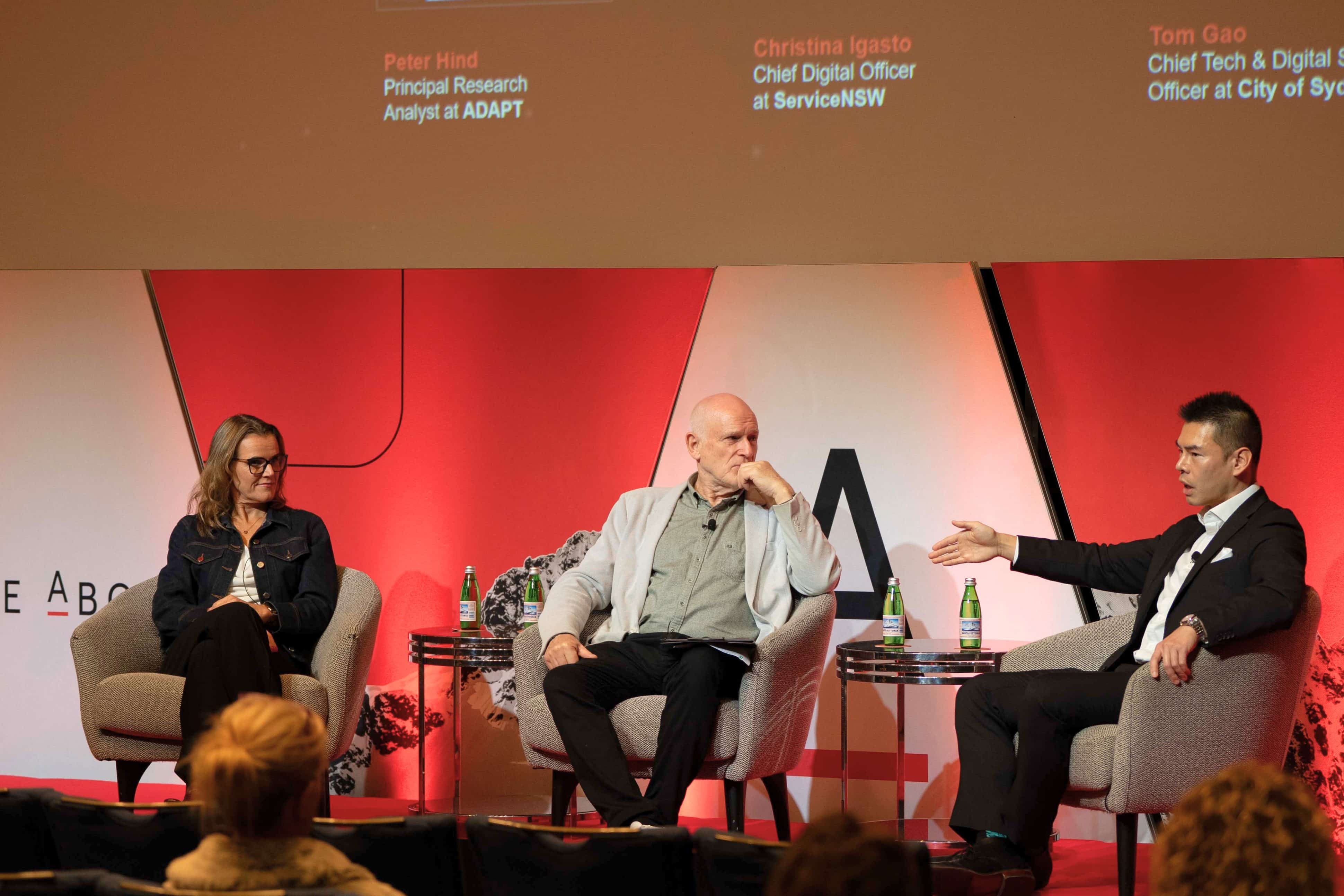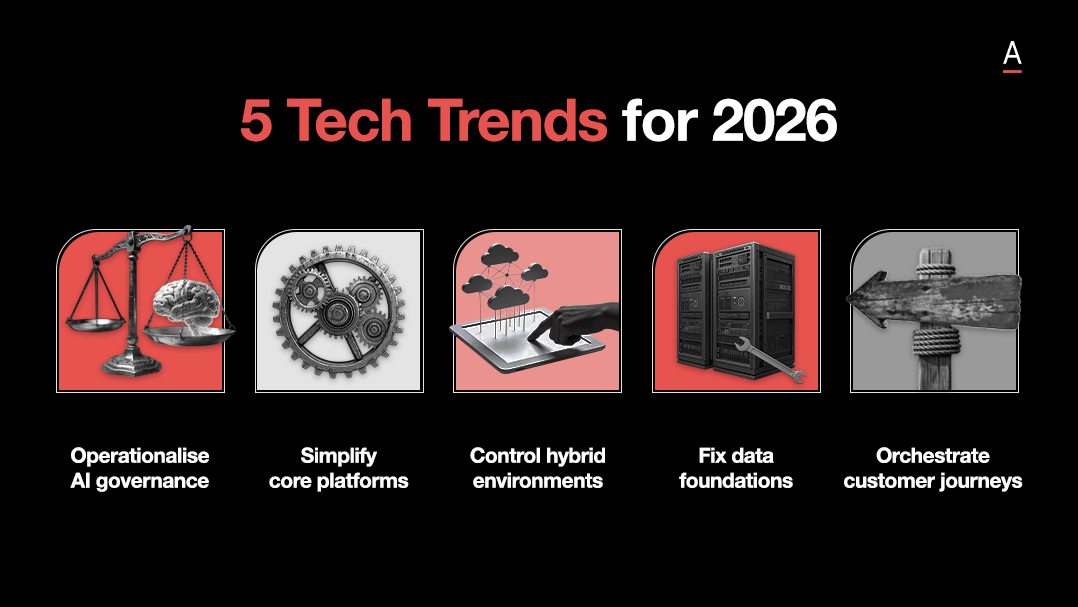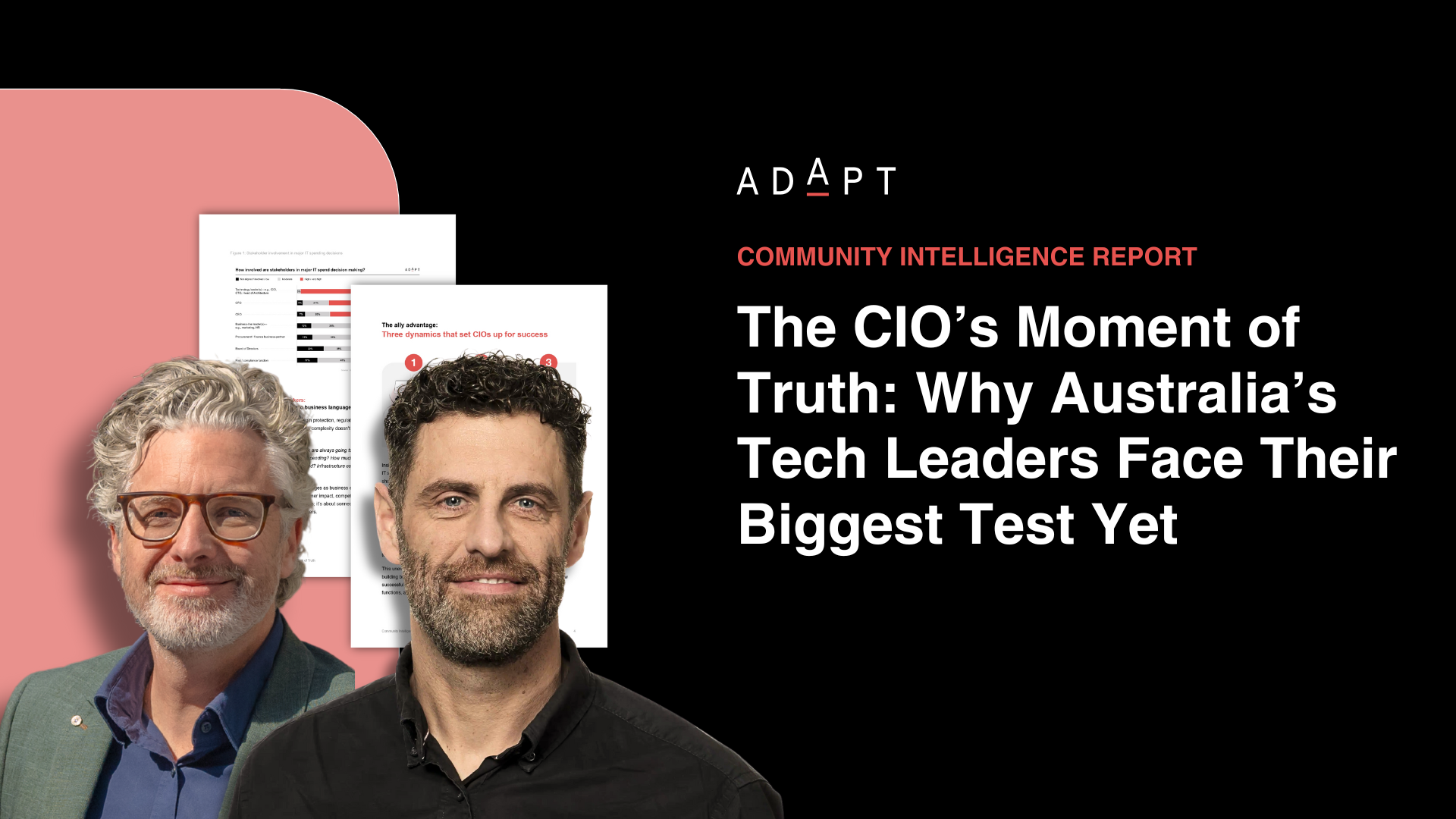In this Digital Edge panel, digital leaders from City of Sydney and Service NSW discussed how to scale AI and digital strategy through team readiness and user-focused execution.
Tom Gao, Chief Tech and Digital Services Officer at City of Sydney, and Christina Igasto, Chief Digital Officer at Service NSW, shared distinct but complementary views on what it takes to lead meaningful transformation in complex environments.
Tom outlined a digital, technology and customer experience strategy operating across 33 suburbs, serving 210,000 residents and welcoming 1 million daily visitors within just 26.15km².
The organisation contributes 22% of NSW’s GDP and 7% of Australia’s GDP, with 2,600 staff delivering more than 200 diverse services.
He challenged the assumption that transformation in this setting is simple, arguing it is often more complex than global private sector roles he has held.
For real progress, leaders must understand how the organisation works, on top of the systems behind it.
Christina focused on the practical deployment of AI, particularly generative AI and bots, and the organisational change needed to support them.
CIO investment in generative AI has risen from 50% in 2023 to 70% today, now accounting for 4% of average IT budgets.
But adoption, she argued, is not a funding issue. Success relies on how teams evolve alongside the technology.
Automation must enhance delivery, not add friction or reduce trust.
She described an evolutionary approach to AI implementation, starting with natural language understanding and scaling gradually.
Her team supports services across 70 agencies, managing high-volume requests across digital, in-person and contact centre channels.
To reduce hallucinations and improve accuracy, AI tools are restricted to trusted knowledge bases such as legislation and policy.
This approach is structured around user goals, iterative testing and co-design.
Together, their insights pointed to a more sustainable model for transformation: pairing AI investment with cultural alignment, real operational insight and ongoing design thinking.
Key takeaways
- Complex environments demand more than technical fixes – Delivering 200+ services across diverse communities shows that digital success depends on understanding the organisation as deeply as the tech.
- AI adoption requires cultural and operational support – With 70% of CIOs investing and AI taking 4% of IT budgets, leadership must prioritise team readiness and workflow alignment.
- User-focused AI rollouts improve trust and accuracy – Gradual implementation, tied to vetted sources and shaped through co-design, helps ensure AI enhances service rather than undermining it.































